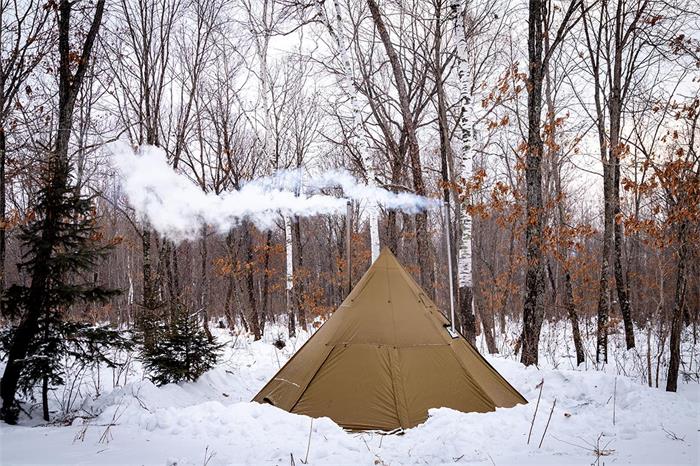What To Look For When Buying A Backpacking Tent
There are a few key characteristics to consider when buying a backpacking tent. Consider these before making a decision.

Material
The material a tent is made from plays a huge role in how durable it will be. Most backpacking tents will use nylon or dyneema. Dyneema is super-strong and ultralight, but is very expensive. Nylon is less durable and heavier, but it is cheaper.
To determine how strong a material is, look for its denier rating. Nylon tents will be labled as little as 7-denier (7D) and maybe as high or higher than 1000-denier. Backpacking tents will be at the lower end of this scale, with the majority being under 100-denier.
Most importantly, pay attention to the denier of the floor of a tent. Many backpacking tents, using thinner material, will require a tent footprint to protect the floor from damage. Some will come with a footprint included, but most will be sold separately.
Weight
Weight is the number one thing separating a backpacking tent from a camping tent, so it goes without saying to consider how much weight you’ll be carrying if you are looking for a backpacking tent. Most will list their weights, but don’t be confused when you see minimum trail weight versus packaged weight. Minimum weight is your tent minus its rainfly or other attachments while its packaged weight is everything, including poles and stakes.
Head Room

You can find diagrams on most tents’ dimensions and they usually include the inside height. You want a tent with enough head room that you’ll be comfortable. Don’t expect to be able to stand in any backpacking tent, but you will probably want a tent with enough head room to at least sit up straight.
3-Season or 4-Season
A 3-season tent typically means the tent is designed for use in the spring, summer, and fall, but don’t let the name fool you into thinking it can’t be used during the winter. And don’t think that a 4-season tent is good year-round because in actuality, they are best reserved for winter camping as they are designed to handle snow and ice. As long as you aren’t expecting heavy snow or ice, a 3-season tent will be just fine.